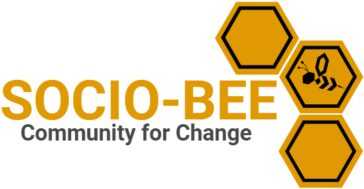Inaugural lecture, delivered upon public acceptance of the endowed professorship in Professionalisation of Nursing and Care in Elderly Care by Prof. Dr. Robbert J.J. Gobbens at Tilburg University on 29 September 2023.

A Dutch healthcare organisation modernizes its real estate portfolio to meet today’s requirements and acquired an office building for conversion into a nursing home for elderly with dementia. The purpose of the research has been to study the design principles for elderly with dementia, for innovative and smart application in work processes and the acquired building.Methods – Using multiple-method qualitative research design, bachelor thesis students of a university of applied sciences explored the reconstruction of the acquired building and related healthcare processes. Results – Application of design principles for the elderly with dementia were studied, among which were interior design, catering process, and connection with the neighbourhood. Feasible interior ideas were elaborated, intentions for change in the catering process were confirmed by stakeholders, and an action plan for neighbourhood connections was delivered. Elements are being used for a final design. Implementation has to be checked with close scrutiny.Originality – The application of design principles for elderly with dementia (design, favourable state, beautiful moments) together with changes in work processes of health care employees aiming at patient-centred care is a new combination. Practical or social implications – When a healthcare organisation chooses a new care concept, not only the surroundings change. Also, the processes around people and the way we take care of them change. In many ways a new concept can only succeed when the employees and the way they work change as well.
MULTIFILE

Background: Despite high prevalence of mental problems among elderly migrants in The Netherlands, the use of psychosocial care services by this group is low. Scientific evidence points at the crucial role of social support for mental health and the use of psychosocial services. We therefore explored the role of social networks in the access to psychosocial care among elderly migrants in The Netherlands. Methods: A qualitative study was conducted using semi-structured group interviews and individual interviews. The eight group and eleven individual interviews (respectively n = 58 and n = 11) were conducted in The Netherlands with Turkish, Moroccan, Surinamese, and Dutch elderly. The data were analysed through coding and comparing fragments and recognizing patterns. Results: Support of the social network is important to navigate to psychosocial care and is most frequently provided by children. However, the social network of elderly migrants is generally not able to meet the needs of the elderly. This is mostly due to poor mental health literacy of the social network, taboo, and stigma around mental illness and the busy lives of the social network members. Conclusions: Strategies to address help-seeking barriers should consider mental health literacy in elderly migrants as well as their social networks, and counteract taboos and stigma of mental health problems.
LINK
While several governmental and research efforts are set upon mobility-as-a-service (MaaS), most of them are driven by individual travel behavior and potential usage. Scholars argue that this is a too narrow perspective when evaluating government projects because choices individuals make in a private setting might not accurately reflect their preferences towards public policy. Participatory Value Evaluation (PVE) is a novel evaluation framework specifically designed to alleviate this issue by analyzing preferences on the allocation of public budgets. Thus, based on PVE, this project aims at assessing different features of MaaS-services (e.g. enhancing mobility of the elderly and the poor, complementing public transport, etc.) from a social desirability perspective and compare them with investments in alternative social projects. Specifically, it aims at establishing the citizen value of MaaS as compared to social investments in green/recreational areas or transport infrastructure (e.g. bike or bus lanes), and eliciting trade-offs between different features of them. The project includes the selection of different investment projects (and their features) that are politically relevant in Rotterdam. It also includes a qualitative assessment on the way individuals evaluate different social projects and their features and a quantitative assessment based on choice models that allow eliciting trade-offs between different attributes and projects. Finally, policy recommendations are provided based on these results. They allow conceiving investments projects to maximize the societal benefits as well as to construct optimal investment portfolios. This information is to be used as a complement of the evaluation of projects on the basis of individual preferences.
SOCIO-BEE proposes that community engagement and social innovation combined with Citizen Science (CS) through emerging technologies and playful interaction can bridge the gap between the capacity of communities to adopt more sustainable behaviours aligned with environmental policy objectives and between the citizen intentions and the real behaviour to act in favour of the environment (in this project, to reduce air pollution). Furthermore, community engagement can raise other citizens’ awareness of climate change and their own responses to it, through experimentation, better monitoring, and observation of the environment. This idea is emphasised in this project through the metaphor of bees’ behaviour (with queens, working and drone bees as main CS actors), interested stakeholders that aim at learning from results of CS evidence-based research (honey bears) and the Citizen Science hives as incubators of CS ideas and projects that will be tested in three different pilot sites (Ancona, Marousi and Ancona) and with different population: elderly people, everyday commuters and young adults, respectively. The SOCIO-BEE project ambitions the scalable activation of changes in citizens’ behaviour in support of pro-environment action groups, local sponsors, voluntary sector and policies in cities. This process will be carried out through low-cost technological innovations (CS enablers within the SOCIO BEE platform), together with the creation of proper instruments for institutions (Whitebook and toolkits with recommendations) that will contribute to the replication, upscaling, massive adoption and to the duration of the SOCIO-BEE project. The solution sustainability and maximum outreach will be ensured by proposing a set of public-private partnerships.For more information see the EU-website.
